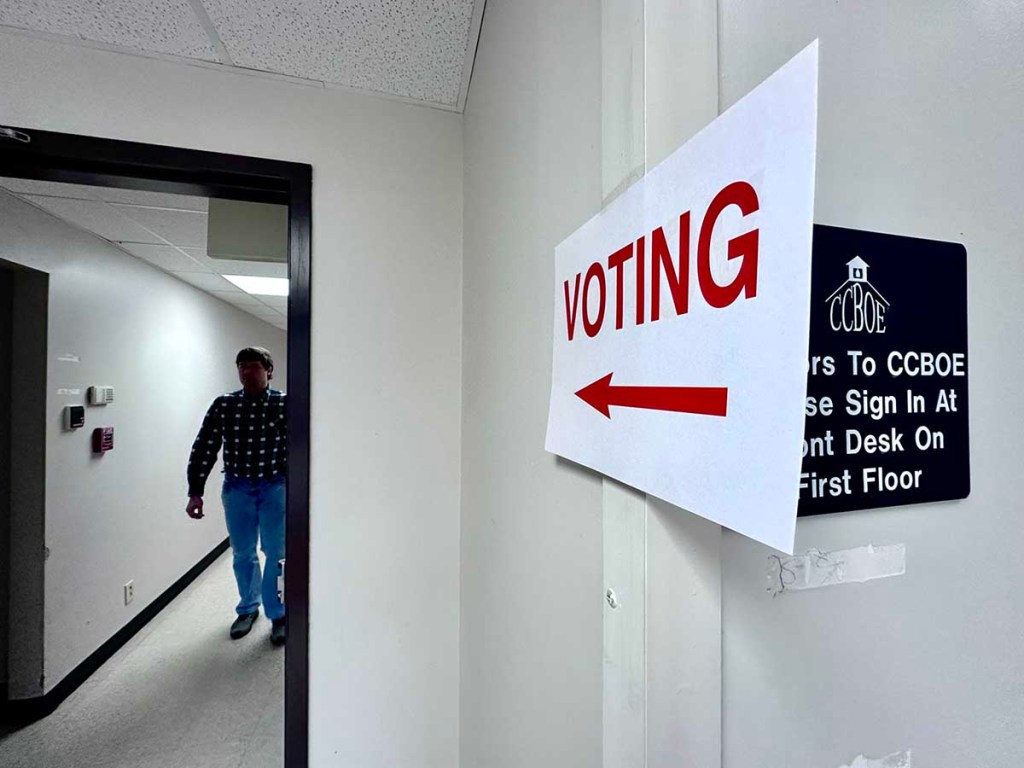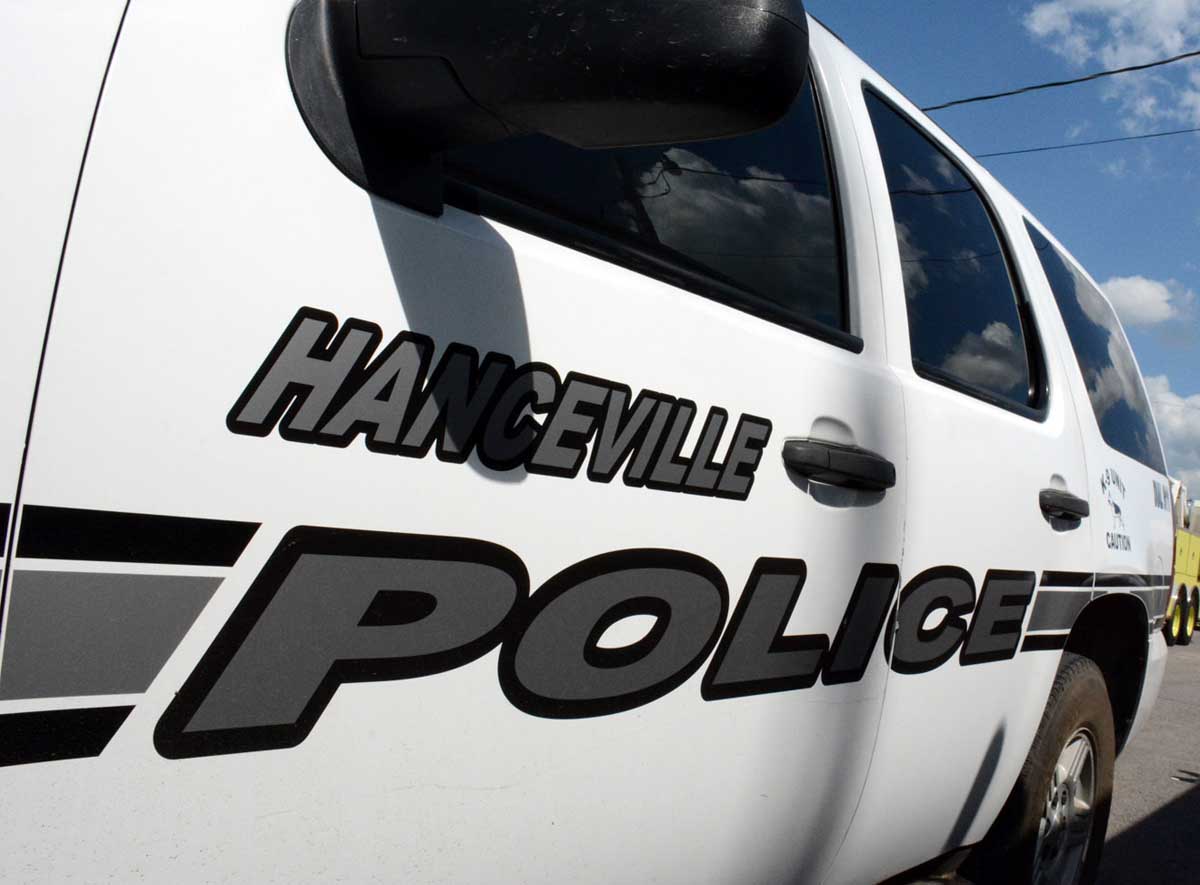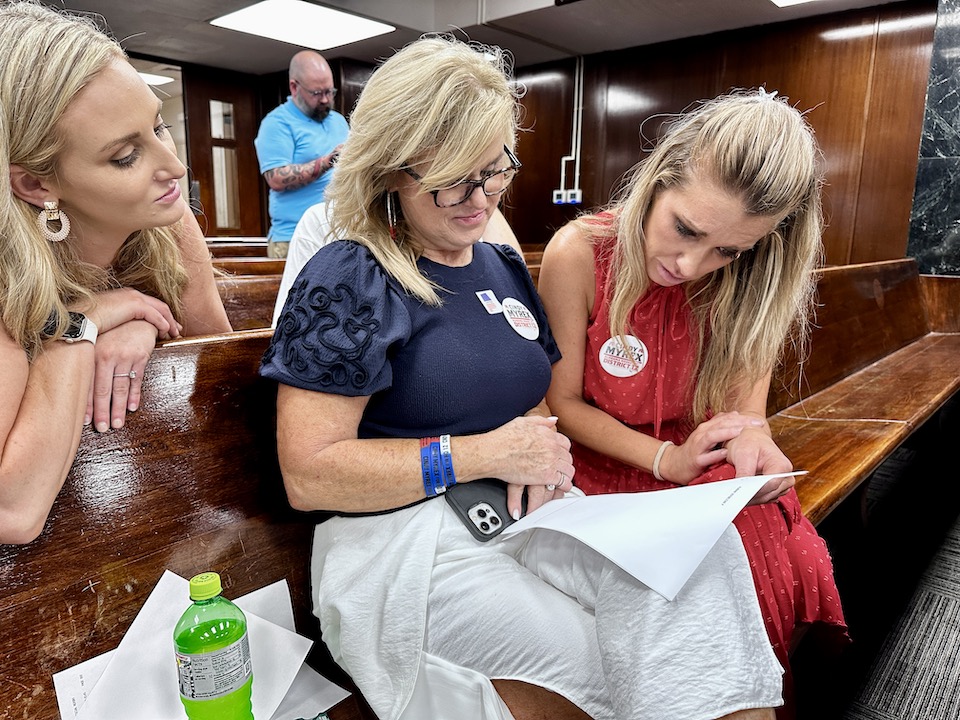11th Circuit upholds partial injunction against Alabama’s absentee voting restrictions
Published 1:15 am Wednesday, October 16, 2024

- A voter leaves the Cullman office building polling location April 2, 2024.
The 11th Circuit Court of Civil Appeals maintained a partial injunction which have temporarily blocked sections of Alabama’s recently enacted “Anti-Ballot Harvesting Bill” — sponsored by State Senator Garlan Gudger (R-Cullman) — Friday, Oct. 11 after a coalition of voting rights organizations argued that the law discriminates against disabled voters.
Alabama joined the ranks of 10 other, predominantly Republican-led, states that enacted laws making absentee voting registration more difficult in 2024, ahead of the November election, with the passage of Senate Bill 1 in March. Gudger championed the bill as a way to deter “ballot harvesting,” which he said involves groups seeking to profit from the electoral process. Gudger pointed to a handful of Democratic led counties located in Alabama’s “black belt” region with higher than average absentee voter participation as evidence of voter fraud.
Trending
Attempts to reach Gudger on Tuesday, Oct. 15, were unsuccessful.
The law places criminal penalties on anyone who distributes an absentee ballot application which already includes the individual’s name or assisting with the return of another person’s absentee ballot application. Receiving any form of payment or “gift” for “distributing, ordering, requesting, collecting, completing, prefilling, obtaining or delivering voter’s absentee ballot application,” is considered a felony and could be punishable by up to a 20-year prison sentence under the law.
Several voter outreach organizations, such as the Alabama League of Women Voters and the Alabama State Conference of the NAACP, halted operations in fear of prosecution in response to the bill and sued the state in April 2024 alleging that the law’s overly vague language disproportionately affected disabled voters and those in marginalized communities ability to participate in the democratic process.
President of the LWVAL, Kathy Jones, previously told The Times that the organization is comprised of community volunteers who regularly educate voters on their voting rights and, when asked, will assist people in filling out absentee ballot applications.
“This bill basically gets between us and the voter and keeps us from having a free and open dialog about voting and absentee voting. When it passed into law, there are several aspects that we feel could trip up our members and cause them to be prosecuted,” Jones said in April.
The lawsuit named Alabama Attorney General Steve Marshall, the state’s 42 district attorneys and Alabama Secretary of State Wes Allen as defendants. The 11th Circuit dismissed the suits claims against Allen last week, but he currently faces a separate legal challenge from the U.S. Justice Department regarding his efforts to remove more than 3,000 names from the state’s voter registry too closely to a federal election.
Trending
The National Voter Registration Act sets a “quiet period” of 90 days before a federal election when states are not allowed to remove names from their lists of registered voters. Allen announced his effort to “remove noncitizens registered to vote,” on August 13, 84 days before the General Election. In a press release, he acknowledged how “some of the individuals who were issued noncitizen identification number have, since receiving them, become naturalized citizens and are, therefore, eligible to vote.” The DOJ described the process as a “systematic voter removal program.”
U.S. District Judge David Proctor granted the plaintiffs a limited injunction in September which blocks certain sections of the law as it applies to disabled voters as a likely violation of the Voting Rights Act.
“The court easily concludes, after reviewing its language, that SB1 unduly burdens the rights of Section 208 [of the Voting Rights Act] voters to make a choice about who may assist them in obtaining and returning an absentee ballot,” the ruling said. “The requested injunction will serve to ensure certain disabled, blind and illiterate voters are not disenfranchised.”
In an attempt to preserve the law in its entirety, Marshall appealed the decision to the 11th Circuit, which sided with the plaintiffs last week. In the two-page decision, judges ruled that removing the injunction would “injure” voting access for disable voters and would be against the public’s interest.
On Monday, Allen expressed his disappointment with the decision during a radio interview with Alabama’s Morning News with JT. He said he believed the law’s provisions protected voters with disabilities rather than harm them and said he and Marshall were committed to continuing to fight the decision “up the chain.”





